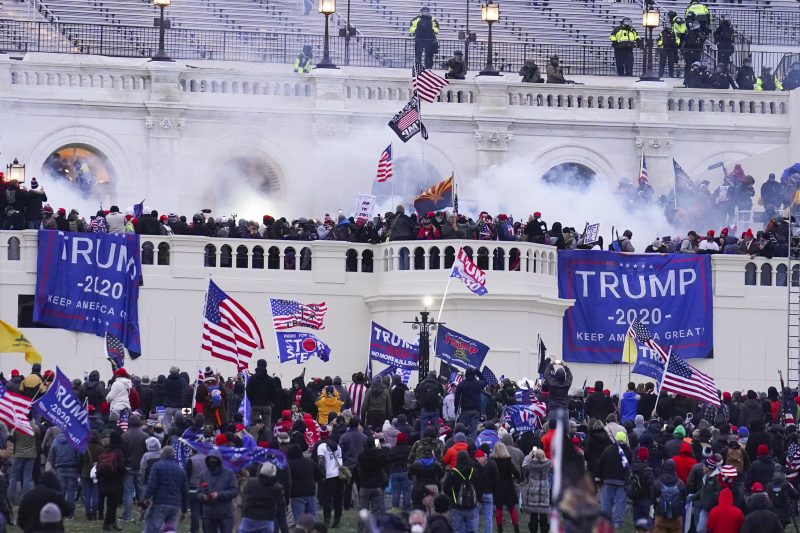In recent years, Americans have expressed growing concerns over the rise of political violence in the country. With various incidents highlighting the deep divisions and tensions within society, it is evident that many are apprehensive about the future of political discourse and conflict resolution. The administration of President Donald Trump has been a focal point in discussions regarding this issue, with his polarizing rhetoric and controversial statements often fueling the flames of unrest.
While political violence is not a new phenomenon in American history, the heightened anxiety surrounding it in recent years can be attributed to a combination of factors. One of the key drivers is the increasing polarization of politics, with individuals on opposite ends of the ideological spectrum becoming more entrenched in their beliefs and less willing to engage in meaningful dialogue. This us versus them mentality has created a toxic environment where animosity and hostility prevail over cooperation and understanding.
President Trump’s unconventional communication style and propensity for incendiary remarks have also played a significant role in exacerbating tensions. His use of inflammatory language, attacks on opponents, and encouragement of aggressive behavior at political rallies have set a troubling precedent for how political discourse should be conducted. Rather than promoting unity and civility, Trump’s rhetoric has often fanned the flames of division and incited violence among his supporters and detractors.
Moreover, the proliferation of social media and online platforms has facilitated the rapid spread of misinformation, conspiracy theories, and inflammatory content. The echo chambers created by these digital spaces have further polarized society and eroded trust in mainstream sources of information. As a result, individuals are increasingly susceptible to believing false narratives and adopting extreme viewpoints, which can contribute to a heightened risk of political violence.
The events of January 6, 2021, when a violent mob stormed the U.S. Capitol in an attempt to overturn the results of the presidential election, served as a stark reminder of the consequences of unchecked political extremism. The attack, incited in part by President Trump’s baseless claims of election fraud, shocked the nation and underscored the urgent need to address the underlying issues driving political violence.
In response to these escalating concerns, it is imperative that Americans take proactive steps to promote dialogue, empathy, and respect across ideological divides. Bridging the gap between opposing factions will require a commitment to listening to differing perspectives, engaging in productive conversations, and challenging misinformation with facts and evidence.
Furthermore, holding political leaders accountable for their words and actions is essential in preventing the normalization of toxic rhetoric and violent behavior. Elected officials must prioritize the well-being of the nation over partisan interests and strive to foster a culture of unity and cooperation.
Ultimately, the future of political discourse in America hinges on the collective efforts of its citizens to reject violence, embrace dialogue, and uphold the democratic values that have long served as the foundation of the nation. Only through a commitment to mutual respect and understanding can we navigate the challenges of an increasingly polarized society and build a more peaceful and inclusive future for all Americans.




























